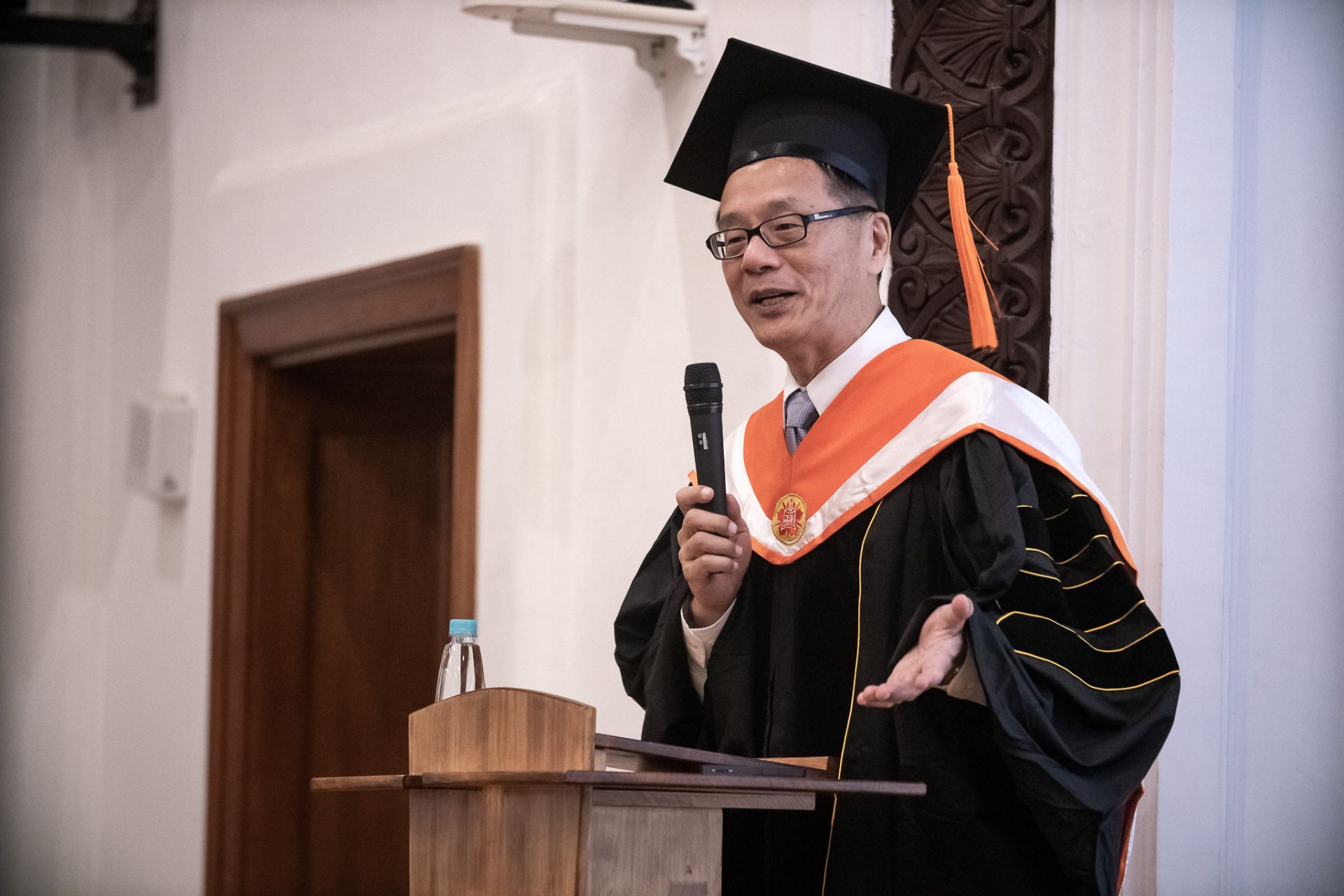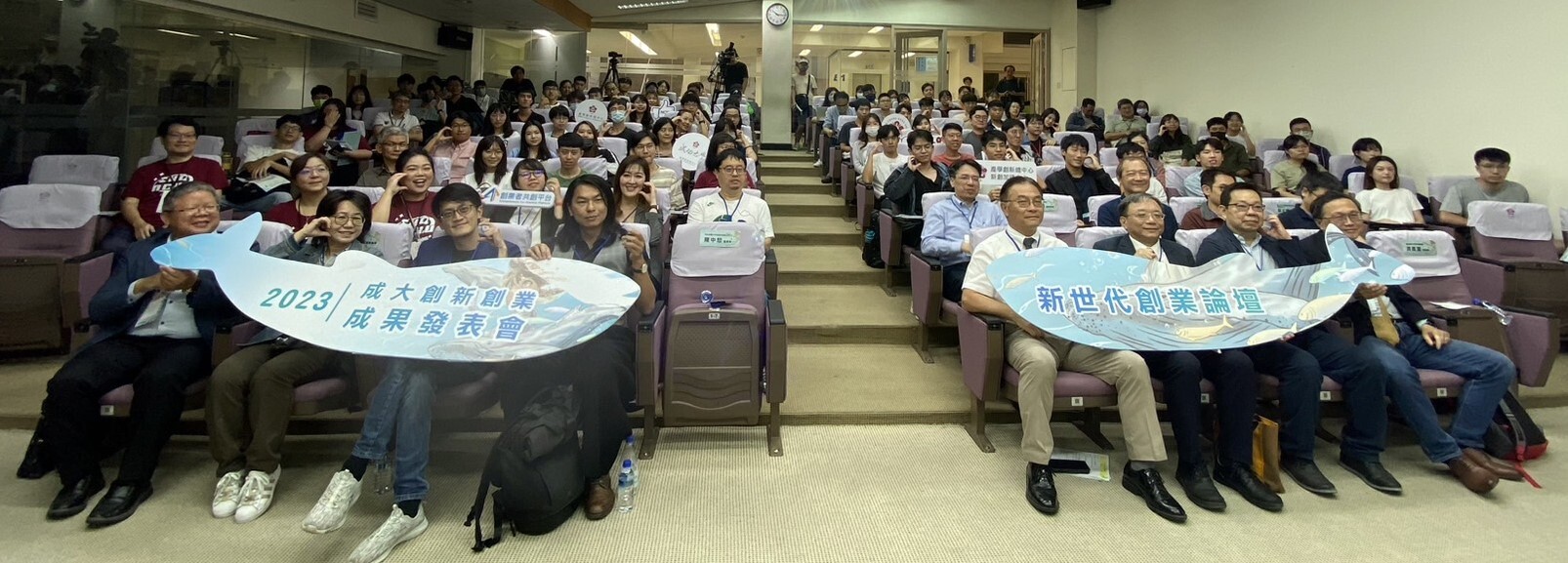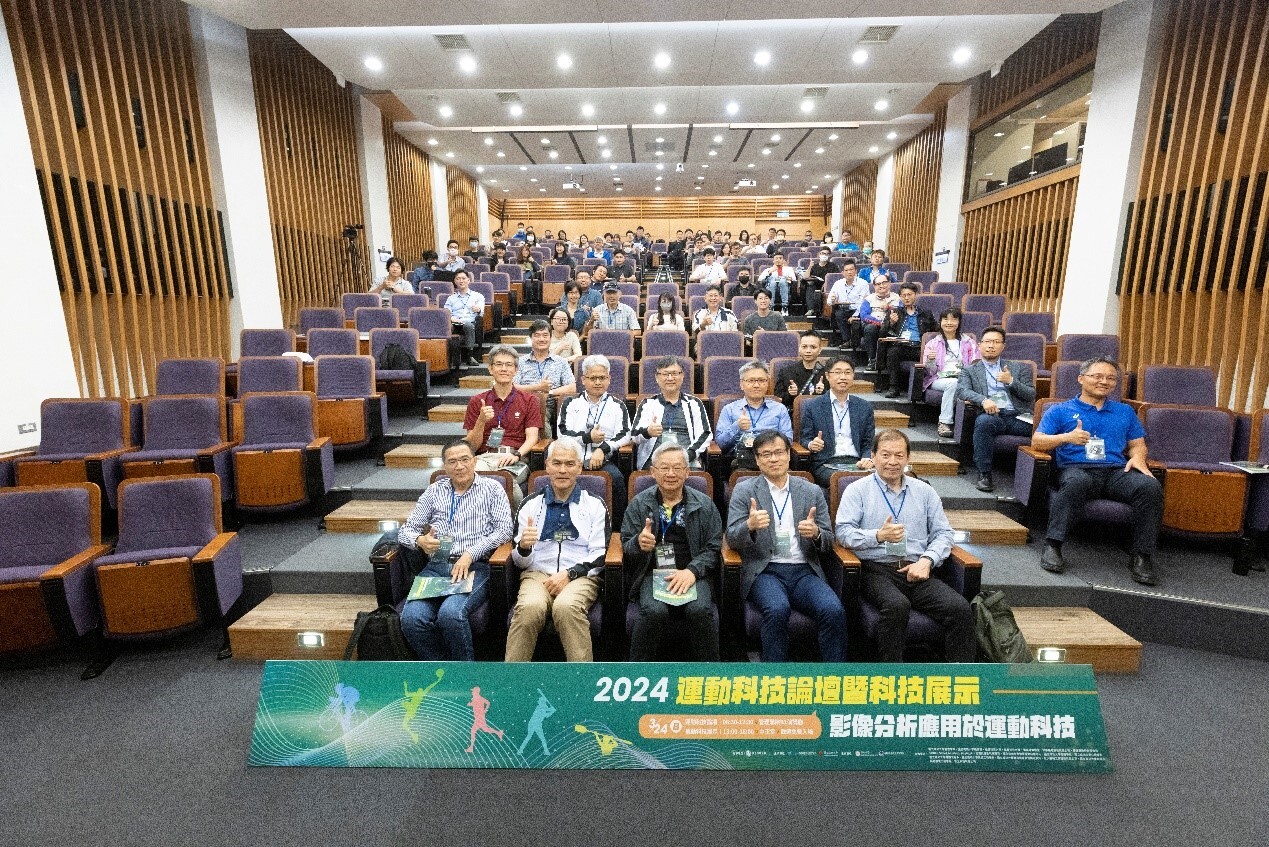Pioneering Interdisciplinary AI Applications: Faculty and Students Enthusiastically Shape the Future of AI
In his opening remarks, President Meng-Ru Shen of NCKU stated that one of the major challenges is how to lawfully acquire AI-related big data, carefully utilize resources, and invest in and regulate the development environment of AI. Once big data is introduced, issues of cybersecurity and data management are bound to arise. Overcoming these obstacles and applying AI in education without violating academic ethics is a critical direction for higher education to pursue.
President Meng-Ru Shen emphasized that NCKU has always placed great importance on fulfilling its social responsibility as a university, which he described as its enduring mission. Currently, NCKU’s AI development is advancing in six key areas: databases, digital privacy, computing power, cybersecurity, education, and service support systems, with dedicated teams established for each domain. He expressed gratitude for the strong participation in the forum, noting that the high level of interest from both academia and industry reflects the significance of AI-related issues. He also said it was an honor to welcome distinguished professors to speak at the university. Through this symposium, he hopes participants can see NCKU’s ongoing efforts and work together to shape a comprehensive blueprint for the university’s future in AI development, gaining valuable insights along the way.
Professor Ping-Yu Chen, Deputy Minister of the National Science and Technology Council, opened his keynote speech with the topic "Human-centered AI — Artificial Intelligence for People," exploring how AI technology should serve the public and address real societal needs. He introduced the "Greater Southern Silicon Valley Strategy," which aims to integrate industries across Taiwan and leverage AI for industrial upgrading. Professor Chen also highlighted the evolving nature of human-AI collaboration, pointing out a surprising shift: "We used to think AI would take over labor-intensive tasks that humans are unwilling to do, but in reality, AI is now performing creative work—such as drawing and making presentations."
Professor Ping-Yu Chen emphasized that even today, the same fundamental question remains: how should AI technology truly "serve humanity"? He posed critical reflections on the role humans should play — should we prioritize a human-centered or AI-centered approach? What are the real needs of people? From computing power and talent development to practical applications, there are still many important issues that need to be explored.
Professor Ping-Yu Chen also shared recent plans by the National Science and Technology Council (NSTC), including the National Center for High-performance Computing’s (NCHC) independent development of a "one-stop cloud platform for large language model applications," known as the RAP platform. Looking ahead, the NSTC will launch the AI 3.0 project, focusing on four major themes: Sovereign AI, Sustainable AI, Secure AI, and Mobile AI, with the goal of expanding AI applications across a broader range of fields.
The keynote session titled "From Monthly Work to Instant Computing: How NCKU's AI Computing Power Can Transform Your Research Efficiency" featured a lineup of speakers including Dean S. Felix Wu and Associate Dean James Jenn-Jier Lien of the College of Electrical Engineering and Computer Science, as well as Chief Technology Officer Lih-Yih Chiou of the Miin Wu School of Computing. They provided an in-depth overview of NCKU’s AI computing resources, demonstrating how high-performance GPU platforms are supporting research in areas such as language processing, medical analysis, and engineering simulation. The team also introduced the multiple computing platforms and teaching support tools currently being built, aiming to offer comprehensive application channels and technical support. Moving forward, NCKU will continue to enhance the accessibility of its computing platforms for faculty and students across the university.
The afternoon session began with a talk by Professor Wei-Ta Chu from the Department of Computer Science and Information Engineering at NCKU. He introduced the development and outcomes of the "Introduction to Artificial Intelligence" course, launched in collaboration with the Taiwan Intercollegiate AI Program Alliance during the first semester of the 2024 academic year. Subsequent presentations by faculty members showcased AI applications across diverse disciplines, including the humanities, science and engineering, and the social sciences. Topics covered included "AI Applications in Humanities and Language Teaching," "AI in Mathematics and Programming Education," "Challenges and Governance of AI in Criminal Investigation," and "Edge Intelligence in Biomedical Applications," highlighting the successful cross-disciplinary integration of AI practices.
The final session of the symposium featured Chuan-Pu Liu, Dean of the Research & Development Department at NCKU; Liang-Yi Hung, Dean of Student Affairs; and Jian-Hong Wu, Dean of General Affairs. They shared insights into the application of AI in student affairs data, particularly in supporting student career development and guidance services through predictive analytics to accurately anticipate student needs. The Office of General Affairs presented how it has adopted advanced AI-based image recognition technologies to enhance campus monitoring, enabling real-time awareness of facility and personnel status. These efforts aim to elevate campus safety through smart security solutions, showcasing how AI technologies can be effectively applied to ensure a safer and more intelligent campus environment.
Additionally, the symposium announced a call for proposals for AI-related projects within the university, aiming to encourage faculty participation in innovative AI research and teaching design. This initiative seeks to strengthen NCKU’s AI capabilities and advance the development of a sustainable smart campus. Many attending faculty and students expressed that the symposium highlighted NCKU’s forward-thinking vision and strong momentum in the AI field. It also provided a valuable platform for practical exchange and collaboration, enhancing participants’ understanding of AI and sparking new ideas and possibilities for future research and educational applications. As one attendee noted, "There is still so much more we can do with AI in teaching, research, and service."
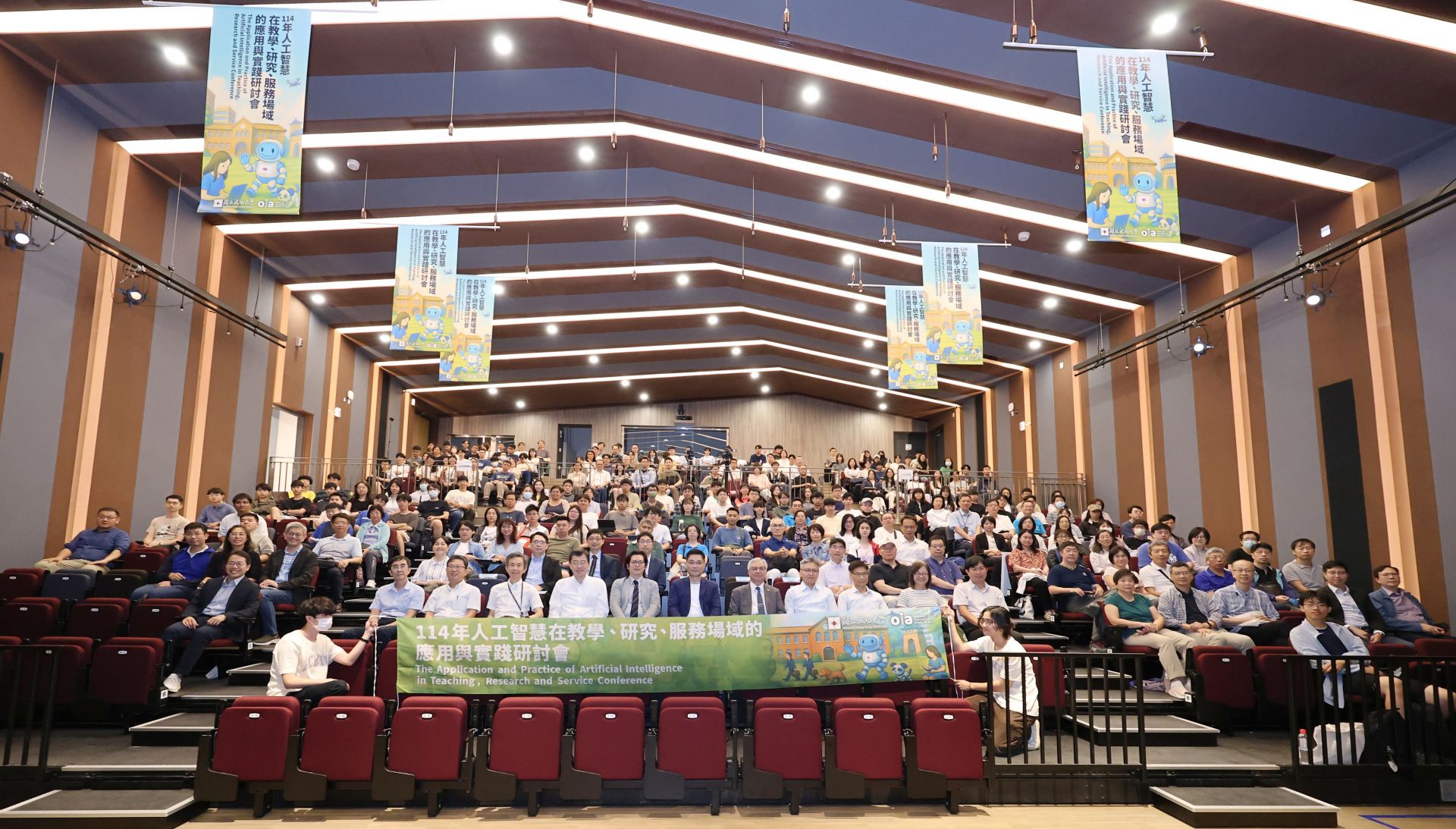
National Cheng Kung University held the "Symposium on the Application and Practice of Artificial Intelligence in Teaching, Research, and Service" on May 4 at the International Conference Hall of Macronix Hall, Cheng-Kung Campus
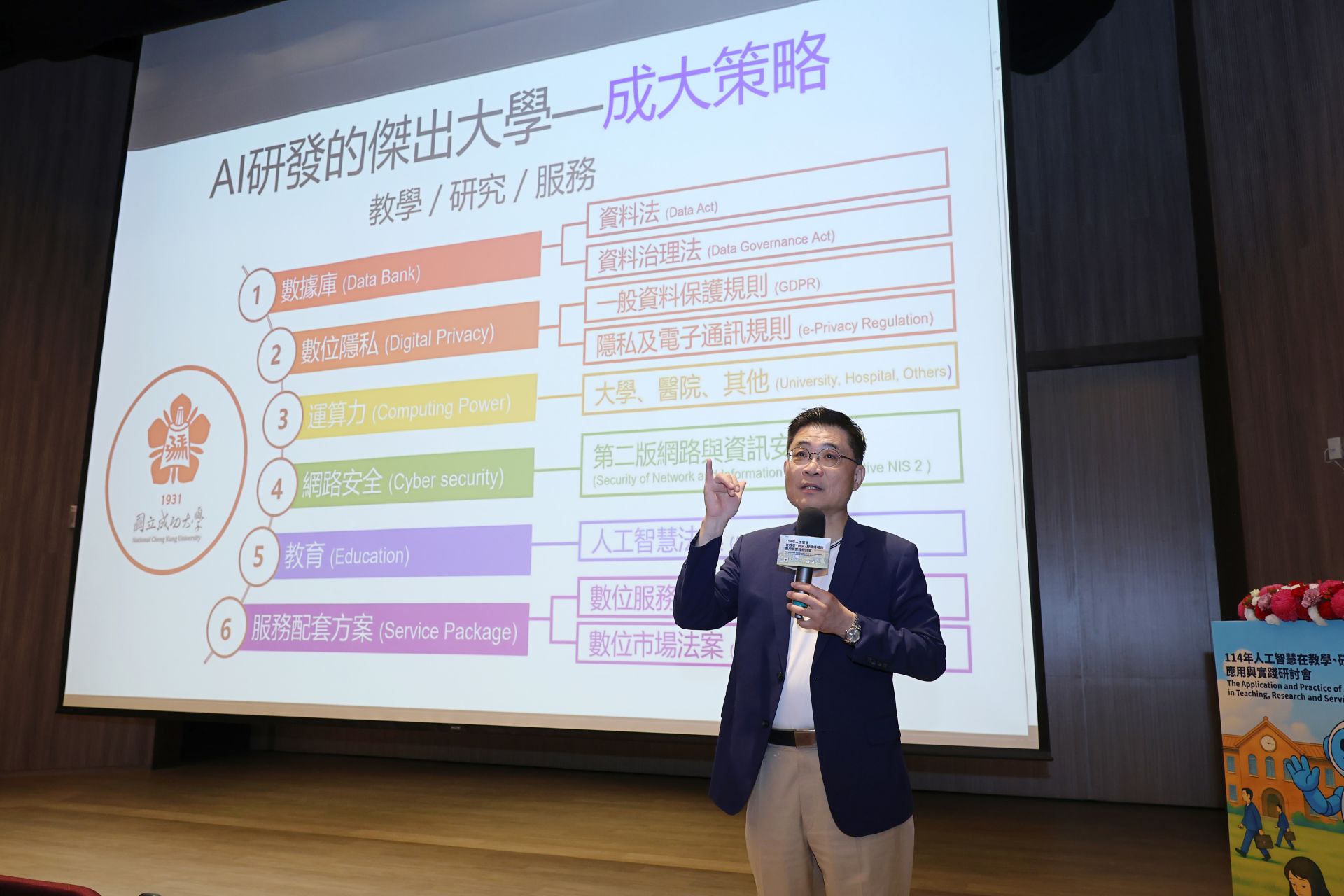
In his opening remarks, President Meng-Ru Shen encouraged everyone to view this symposium as an opportunity to witness NCKU's ongoing efforts and to collaboratively outline a vision for the university's future development in AI, hoping that all participants would gain valuable insights and take away a wealth of knowledge
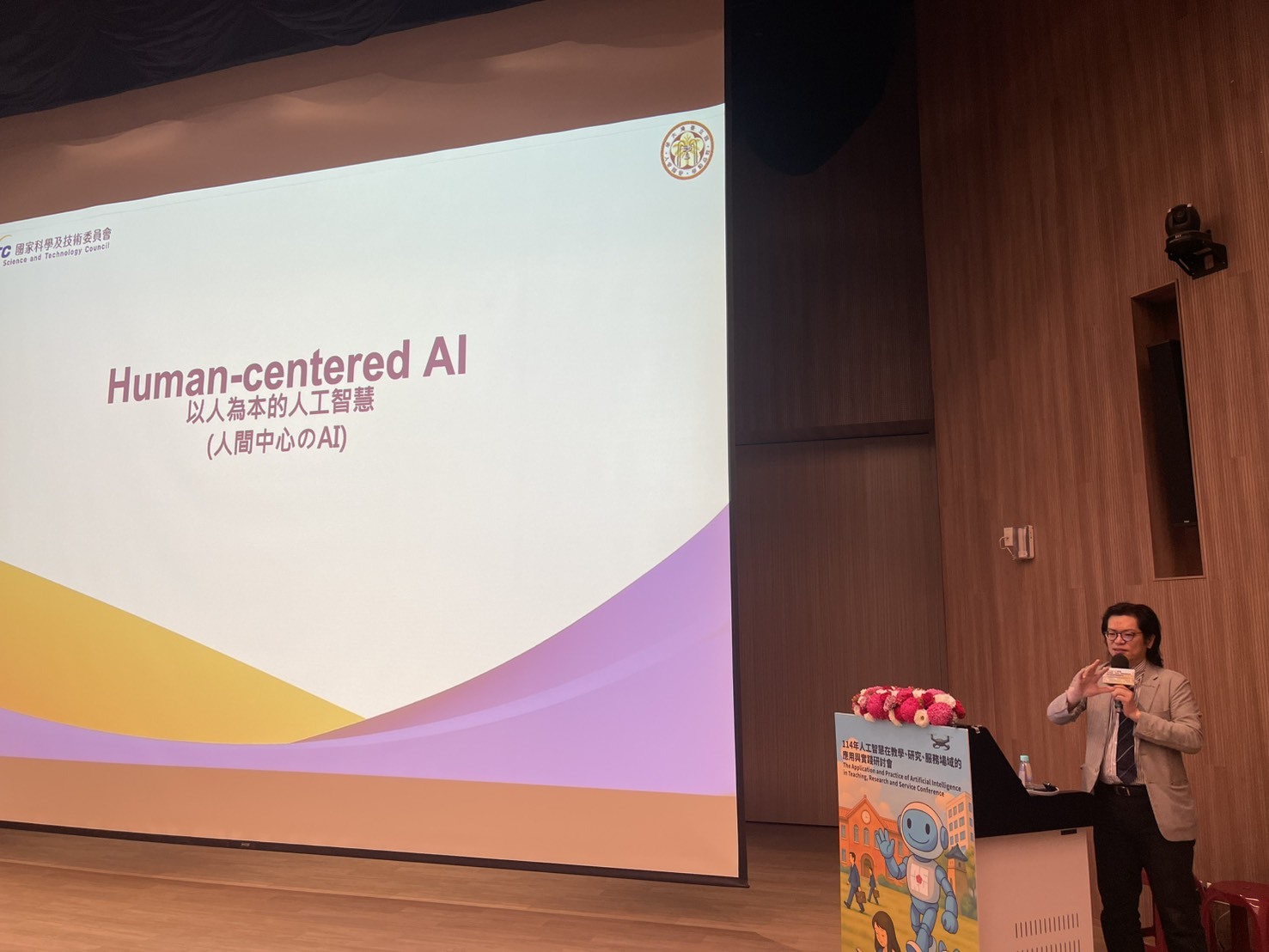
Professor Ping-Yu Chen, Deputy Minister of the National Science and Technology Council, opened the event with a keynote titled "Human-centered AI — Artificial Intelligence for People", exploring how AI technology should serve the public and address real-world needs





